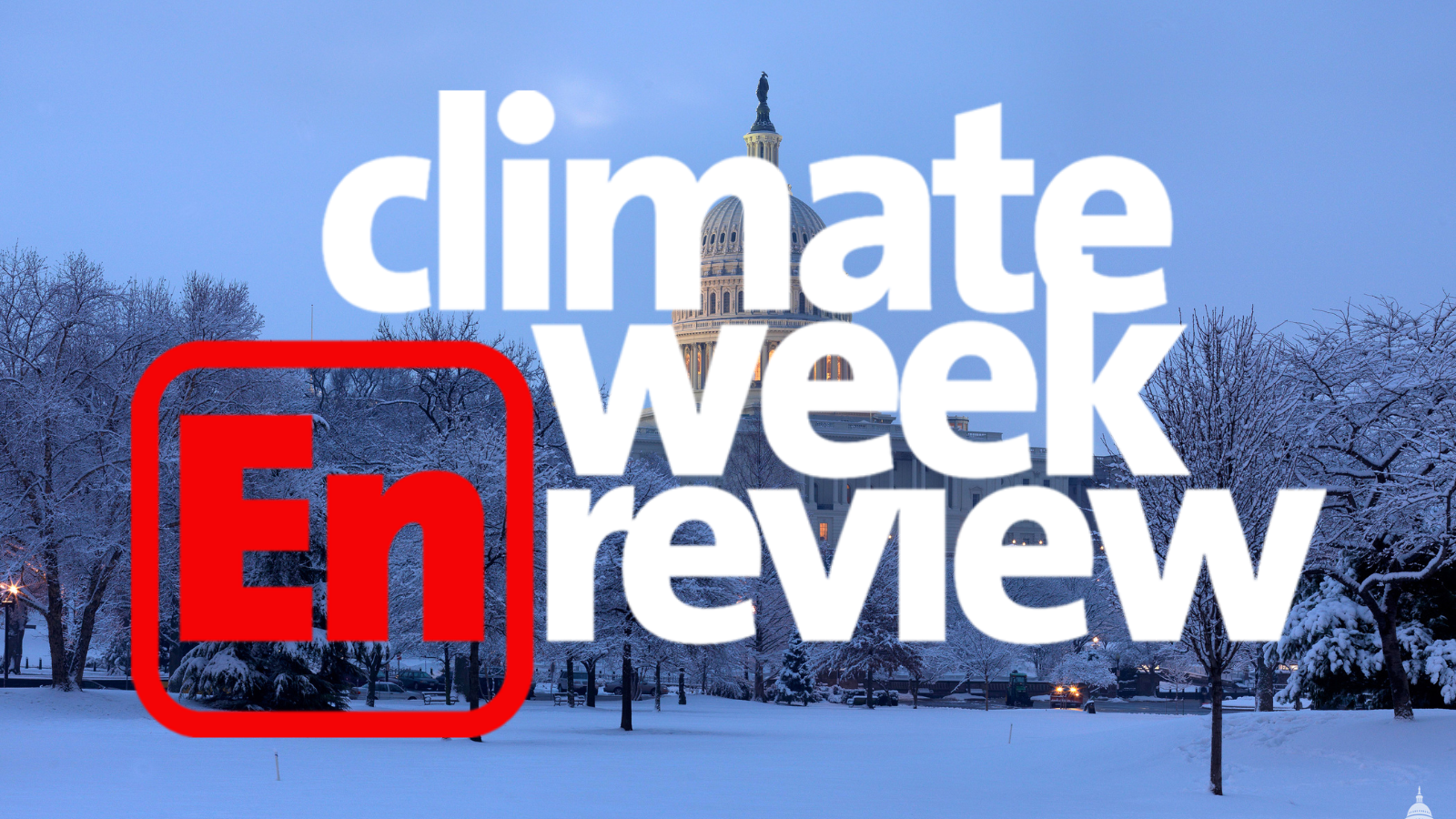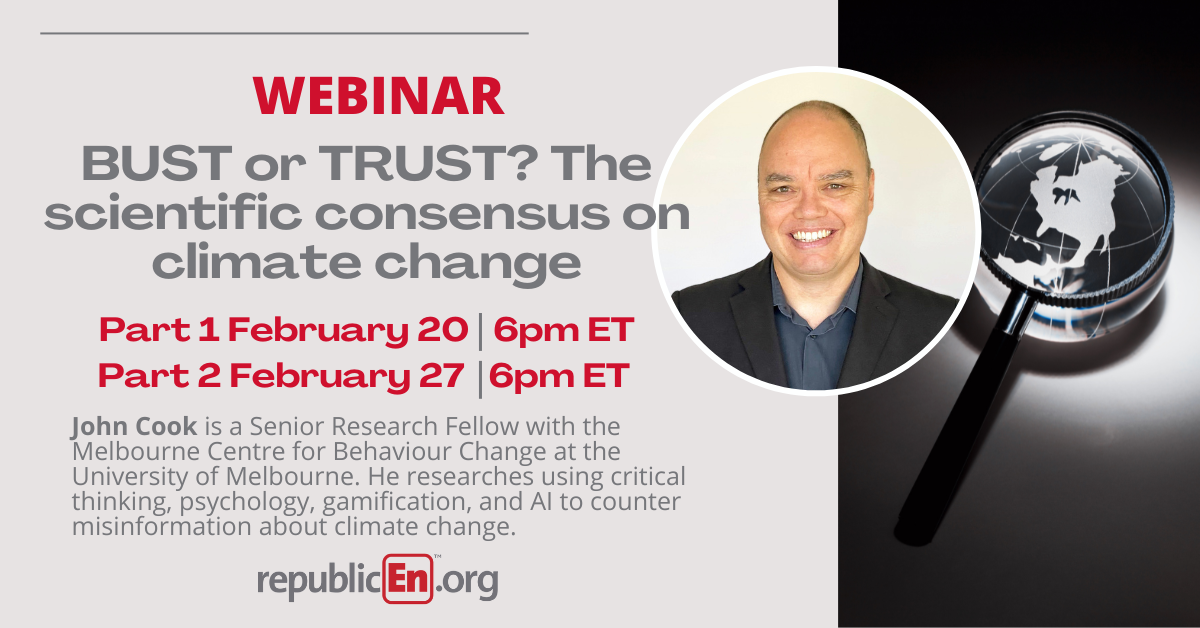
Baby, it’s cold outside… and I love it. (Definitely helps justify the number of cute winter hats I’ve collected over the years.) I have missed traditional winter, so even though a polar vortex embracing most of the U.S. is not normal, I’m not sad about temps in the teens and single digits. I was made for this weather. Cue the fireplace and hot toddy!
This week’s must read: Republicans hold the key to depolarizing the climate issue (The Hill)
“Republicans may hold the key to bridging the partisan gap on climate solutions,” write psychology professors Leaf Van Boven and David K. Sherman in this op-ed that delves into the results of recent experiments they led that demonstrates that “Republican leadership can depolarize climate policy.”
“A study by political scientists Renae Marshall and Matthew Burgess of 418 major state-level enacted decarbonization bills from 2015-2020 found that nearly one-third were passed in Republican-controlled legislatures, with half enjoying bipartisan co-sponsorship. Compare this to Democratic-controlled legislatures, where only 33 percent of climate bills had bipartisan support. Republican-led bills emphasized incentives for renewable energy like wind and solar, while Democratic bills focused on mandates and standards to limit carbon emissions.”
Check it out—and not just for the shout out to us and the EcoRight Speaks…

BOOK REVIEW: “Glacial” exposes the heroes and villians of U.S. climate policy (Yale Climate Communications)
I’m honored the Michael Svoboda has again featured Glacial, this time with all full review—and with top story honors on the Yale Climate Communications website.
“Chelsea Henderson was able to write “the inside story” of the last six decades of climate politics in the United States because she played several roles in that story for almost half its run and because, as a result, she was able to interview key players during the decades she was not,” he writes. “Henderson presents her “inside story” in eight parts, which are subdivided into short chapters of two to 10 pages. The organization and prose style of the book no doubt reflect Henderson’s experience working for representatives, senators, and chief executives. These very busy people want to consume information in easily digested portions. Henderson’s chapters are short, clearly written, artfully engaging, and logically sequenced. Her book is a brisk read.” (The emphasis is mine in case you haven’t read it yet… some people say it reads like historical fiction. You can still pick up a copy from your local bookstore or your favorite place to buy books!)
This week’s must listen: What is the Conservative Climate Caucus? (Possibly Podcast)
Sometimes, you just need three minutes to learn something new. I love a quick clip and this one gives you what you need to know about the House Conservative Climate Caucus. If reading is more your thing, you can find the transcript here.
Last week, I erroneously said the finale of the 8-part podcast series Hot Mess would be released. That would be today. You can find it here. We highly recommend the whole series as an insightful look at climate policy sausage making.
Speaking of podcasts, we are looking at a February 11th launch date for season ten of the EcoRight Speaks! Mark your calendars!
Commentary From Our EcoRight Community
Congrats to long-time member (and Christmas enthusiast) Alison Steele for her op-ed recently published in the Trib Live focused on the connection between shale gas and wildfires.
“The methane gas produced by tens of thousands of gas wells in Pennsylvania and in other states is burned at power plants and by consumers all across the country. This combustion of gas creates carbon emissions that warm the atmosphere and speed up climate change. The accidental leaking of methane — estimated to be between 2.8% and 17%, depending on the facility — is about 80 times worse than carbon dioxide for warming the planet in the short term,” she writes. “When the Earth heats up, forests dry out. A bolt of lightning, a spark from a campfire, or downed power lines can set off enormous blazes that devastate whole regions and create poor air quality for people living far away from the fires. It’s a vicious cycle that puts the health of millions of people at risk.”

SAVE THE DATE(s) for our upcoming series!
Join us for our first webinar of the year, a two-part look at the scientific consensus on climate change, featuring the founder of Skeptical Science, John Cook.
To register, follow the link!
Interactive webinar: Teaching Climate Change Solutions
Speaking of webinars, our good friends at Climate Interactive are hosting an interactive webinar geared toward educators (though you don’t have to be an educator) on Thursday, January 30 where participants will discover how to bring climate science to life in classrooms and beyond.
To register, click here or share with a friend passionate about climate education.
That’s it for me. See you next Friday!
